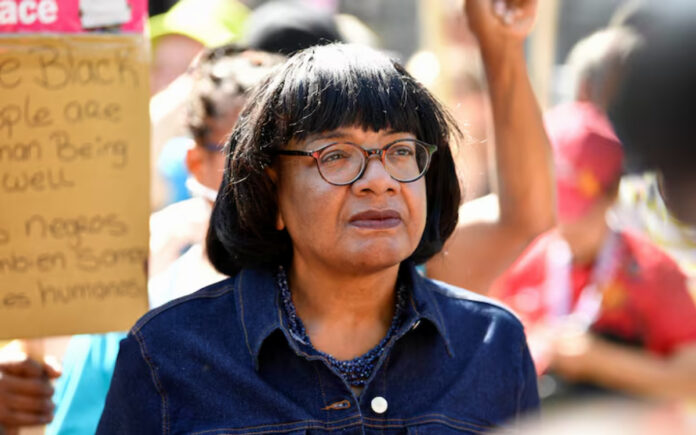London: Diane Abbott, Britain’s first Black woman lawmaker, expressed dismay on Wednesday over indications that the opposition Labour Party might bar her as a candidate in the upcoming elections due to comments she made over a year ago regarding Jews and racism.
Abbott, 70, holds the distinction of being Britain’s longest-serving Black member of parliament, having been first elected in 1987. A prominent figure on Labour’s left wing, she has been a vocal advocate on issues such as racism, poverty, and international affairs.
Last year, Abbott was suspended by Labour after stating that Jews did not encounter racism throughout their lives. While she stated she had been reinstated, reports from The Times suggest she could be prohibited from running in her northeast London district in the parliamentary election scheduled for July 4.
Expressing her disappointment, Abbott, who has paved the way for other Black women in politics, stated, “I am very dismayed that numerous reports suggest I have been barred as a candidate.”
Also Read | Poland to Reintroduce Buffer Zone at Belarus Border, Says Prime Minister Tusk
Labour leader Keir Starmer clarified that no final decision had been made regarding Abbott’s candidacy. Starmer has been actively working to reform Labour, addressing allegations of antisemitism following accusations against the party during Jeremy Corbyn’s tenure.
Abbott, a close ally of Corbyn, who led Labour from 2015 to 2020, has also faced candidacy restrictions. Corbyn will now run as an independent candidate.
Also Read | Indian Navy Prepares to Procure Rafale M Fighter Jets from France
Labour’s recent shift towards the center under Starmer’s leadership has alienated some left-leaning voters. Barring Abbott from candidacy could potentially further estrange Labour from its traditional support base, including Black voters.
Also Read | Global Unemployment Predicted to Dip Slightly in 2024, Reveals UN Labour Body
Abbott, who has been a target of online racist and sexist abuse, was suspended last year over a letter to a newspaper discussing Jewish people and racism. In her letter, she acknowledged the prejudice faced by Jews but drew a distinction between this and systemic racism. She later apologized “unreservedly” for any offense caused.



